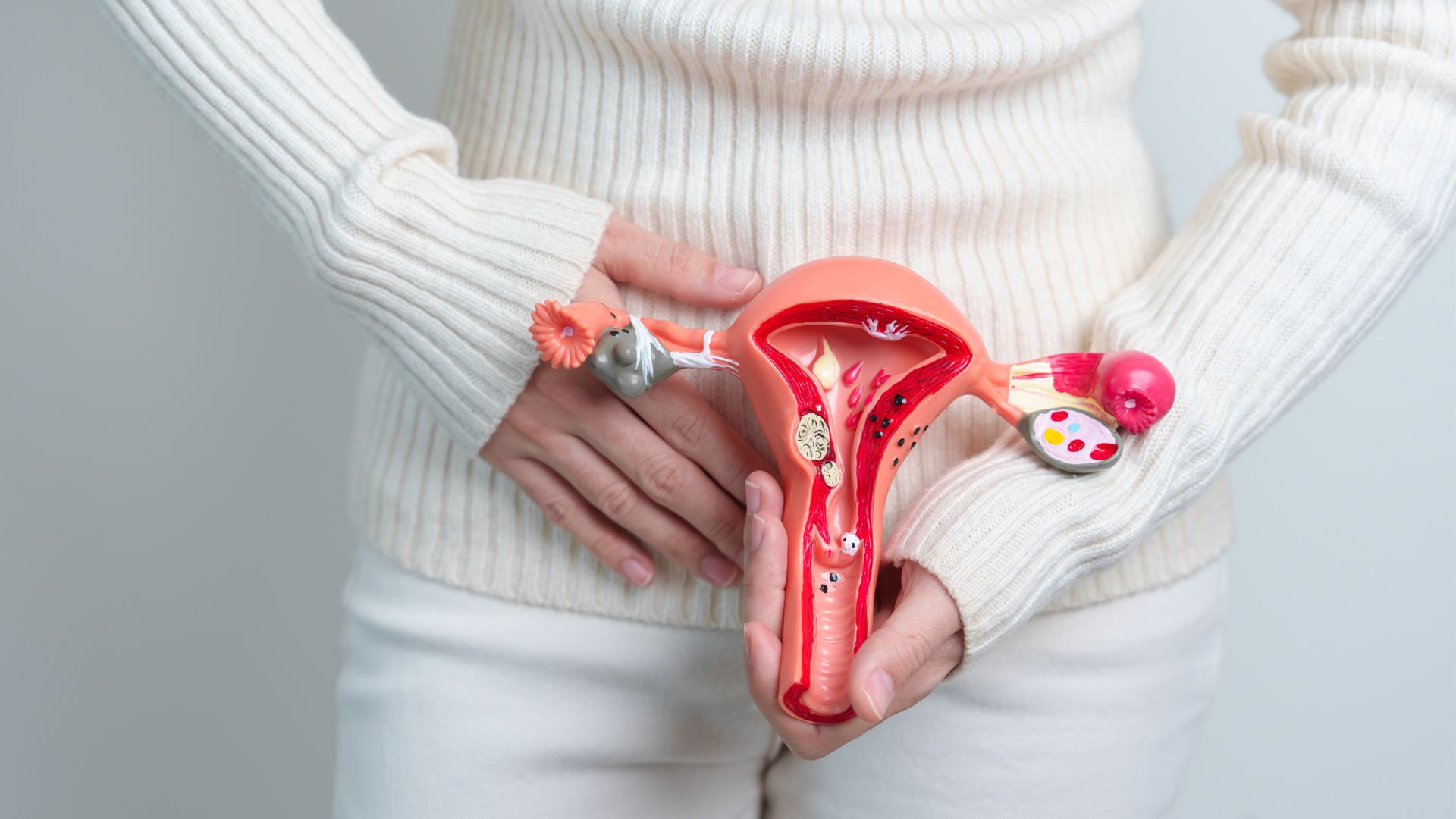
If you’ve been told you have poor ovarian reserve, it means your ovaries have fewer eggs than expected for your age.
This can make it harder to get pregnant naturally. But there is hope! IVF (in vitro fertilization) may help you have a baby. 👶
| Key Takeaways | 💡 |
|---|---|
| Poor ovarian reserve means fewer eggs in your ovaries | 🥚 |
| It can be harder to get pregnant naturally | 🤰 |
| IVF may help you have a baby | 👶 |
| Your doctor will give you tests and make a plan just for you | 👩⚕️ |
Understanding Poor Ovarian Reserve 🔍
Your ovaries are like a factory that makes eggs. You’re born with all the eggs you’ll ever have. As you get older, the number of eggs gets smaller.
Some things can make you have fewer eggs:
- Getting older 👵
- Some health problems 🏥
- Surgery on your ovaries 🔪
Your doctor will do tests to check your ovarian reserve:
- AMH test: A blood test that measures a hormone made by your follicles (tiny sacs that hold eggs). 🩸
- Antral follicle count: An ultrasound to count the follicles in your ovaries. 📸
Having poor ovarian reserve doesn’t always mean you can’t get pregnant on your own. But it might be harder. 🤞
How IVF Can Help 🌈
IVF is a way to help you have a baby when it’s hard to get pregnant naturally.
Here’s how it works:
- You take medicine to help your ovaries make more eggs. 💊
- The doctor takes the eggs out of your body. 🥚
- The eggs are mixed with sperm in a lab to make embryos. 🧫
- One or two embryos are put back in your uterus. 🍼
IVF can be different if you have poor ovarian reserve:
- You might need more medicine to help your ovaries make eggs. 💉
- You might get fewer eggs than someone with a normal ovarian reserve. 🥚
- The doctor might use a special technique called ICSI to help the sperm and egg meet. 🔬
Your doctor will make a plan just for you based on your test results and health. 👩⚕️
Next Steps 🦶
If you have poor ovarian reserve and want to get pregnant, talk to your doctor. They can help you understand your options and make a plan. 💬
Remember, everyone’s journey is different. Don’t give up hope! With the right help and support, you can reach your dream of having a baby. 🌟
Next we’ll dive deeper into the IVF process and what to expect.
The IVF Process: Step by Step
If you’ve decided to try IVF, here’s what you can expect:
1. Ovarian Stimulation 💊
You’ll take medicine to help your ovaries make more eggs. This is called ovarian stimulation. The medicine is usually given as shots. 💉
| Ovarian Stimulation | What to Expect |
|---|---|
| Medications | You’ll take shots to help your ovaries make more eggs |
| Monitoring | You’ll have blood tests and ultrasounds to check your eggs |
| Timing | This step usually takes 8-14 days |
2. Egg Retrieval 🥚
When your eggs are ready, the doctor will take them out of your ovaries. This is called egg retrieval. You’ll be given medicine to help you relax during the procedure. 😴
| Egg Retrieval | What to Expect |
|---|---|
| Procedure | The doctor will use a needle to take eggs out of your ovaries |
| Anesthesia | You’ll be given medicine to help you relax or sleep |
| Recovery | You might feel crampy or sore for a day or two after |
3. Fertilization 🧫
In the lab, the eggs are mixed with sperm to make embryos. This is called fertilization. If the sperm has trouble fertilizing the egg, the doctor might use a special technique called ICSI. 🔬
| Fertilization | What to Expect |
|---|---|
| Process | Eggs and sperm are mixed together in a lab dish |
| ICSI | A single sperm is injected directly into each egg |
| Development | Fertilized eggs grow into embryos over 3-5 days |
4. Embryo Transfer 🍼
One or two embryos are put back into your uterus. This is called embryo transfer. The doctor will use a thin tube to place the embryos in your uterus. It’s usually painless. 🙌
| Embryo Transfer | What to Expect |
|---|---|
| Procedure | The doctor will use a thin tube to put embryos in your uterus |
| Number of Embryos | 1-2 embryos are usually transferred |
| Recovery | You’ll rest for a short time after, then go home |
5. Pregnancy Test 🤰
About two weeks after the embryo transfer, you’ll take a pregnancy test to see if the IVF worked. 🤞
| Pregnancy Test | What to Expect |
|---|---|
| Timing | About 2 weeks after embryo transfer |
| Type of Test | Blood test to measure hCG (pregnancy hormone) |
| Results | Your doctor will call you with the results |
If the test is positive, congratulations! You’re pregnant! 🎉 If not, don’t lose hope. Many people need more than one IVF cycle to get pregnant. Your doctor will help you plan your next steps. 💕
Financial Considerations for IVF in India 💰
The cost of IVF can be a big worry for many people in India. But understanding the typical costs and ways to get financial help can make it feel less overwhelming.
How Much Does IVF Cost in India? 💸
One IVF cycle in India usually costs between ₹1,00,000 and ₹3,50,000. The exact amount depends on things like:
- Where the clinic is located and how well-known it is
- If you need extra medicines or special techniques
- How many IVF cycles you need
The main expenses in IVF are:
| Expense | What It Covers |
|---|---|
| Medicines | Hormones and other drugs to stimulate egg growth |
| Doctor fees | Consultations, ultrasounds, and procedures |
| Lab costs | Egg retrieval, fertilization, and embryo transfer |
| Embryo storage | Keeping extra embryos frozen for later use |
Is IVF Covered by Insurance in India? 🩺
Some health insurance plans in India are starting to cover IVF, but it varies a lot.
Here’s what you can do:
- Check your current health insurance policy to see if it covers any fertility treatments.
- Contact insurance companies directly and ask about plans that cover IVF.
Other Ways to Get Financial Help 🤝
If insurance doesn’t cover IVF, there are other options:
- Payment plans: Many IVF clinics offer monthly payment plans to spread out the cost.
- Government programs: Some states in India have programs that help pay for IVF. Check with your local health department.
- Non-profit organizations: Some charities and non-profits offer grants or fundraising help for IVF.
Tips for Managing IVF Costs 💡
- Choose a clinic that’s clear about all the costs and gives you a detailed breakdown.
- Plan and budget for the possibility of needing more than one IVF cycle.
- Look into IVF financing options, like loans or special savings accounts.
- Don’t be afraid to ask your doctor or clinic about ways to save money without compromising your care.
Remember, while the financial side of IVF can be stressful, there are resources and options available to help make it more manageable. 💕
Next, we’ll discuss coping with the emotional impact of IVF and where to find support.
Coping with the Emotional Side of IVF 🌈
Going through IVF can be an emotional rollercoaster. It’s normal to feel excited, anxious, hopeful, and disappointed at different times. Here are some common emotions you might experience:
| Emotion | What It Might Feel Like |
|---|---|
| Hope | Excitement about the possibility of getting pregnant |
| Anxiety | Worry about the IVF process and if it will work |
| Sadness | Grief over infertility and the need for IVF |
| Loneliness | Feeling like no one understands what you’re going through |
Remember, these feelings are valid and you’re not alone. Many people going through IVF feel the same way. 💛
Tips for Managing Stress 🧘♀️
IVF can be stressful, but there are things you can do to help manage your stress:
- Practice relaxation techniques like deep breathing, meditation, or yoga. 🧘♀️
- Take care of your body with healthy food, gentle exercise, and enough sleep. 🥗
- Do things you enjoy, like hobbies or spending time with loved ones. 🎨
- Talk about your feelings with your partner, friends, or family. 💬
- Consider seeing a therapist who specializes in infertility. 👩⚕️
Finding Support 🤗
You don’t have to go through IVF alone. There are many places you can find support:
- Your partner: Lean on each other and communicate openly. 💑
- Family and friends: Share your journey with loved ones who can offer support. 👪
- Support groups: Join an online or in-person group to connect with others going through IVF. 👥
- Online communities: Find forums or social media groups dedicated to IVF support. 💻
- Counselors or therapists: Seek professional help to cope with the emotional challenges of IVF. 🩺
Remember, asking for help is a sign of strength, not weakness. 💪
Moving Forward with Hope 🌟
IVF can be a challenging journey, but it can also be a path to fulfilling your dream of having a baby. As you move forward, remember:
- Be kind to yourself: IVF is hard, and you’re doing your best. 💗
- Celebrate small victories: Each step of the process is a step closer to your goal. 🎉
- Hold onto hope: Many people with poor ovarian reserve have successful pregnancies through IVF. 🌈
- Take it one day at a time: Focus on the present moment and the next small step forward. 🌿
You are stronger than you know, and you’ve got this! 💪🌟
For more information and support, check out these resources:
- IVF books for Indian readers 📚
- Choosing the best IVF clinic in India 🏥
- IVF success stories in India 💌
- IVF centers in Gurgaon 🏥
- IVF centers in Bhubaneswar 🏥
- IVF centers in Kolapur 🏥
- IVF centers in Warangal 🏥
- IVF centers in Thiruvananthapuram 🏥
Wishing you all the best on your IVF journey! Remember, there is always hope.






